The Daily Mail has an article about U.S. Air Force aerial gunner Ed Drew’s tintype photography from Afghanistan. Tintype is a historical relic; a kind of photography dating to the middle of the 19th century that was invented just in time to document the Civil War. Drew is using this finicky, difficult technique to take stunning photos (like the one above) of his fellow servicemen and women in Afghanistan. He says that the painstaking process helps him handle the stress of deployment, and I hope that’s true. In any case, the results are arresting. See more of the photos here.
Arts
Daily Rituals of Creative Genius
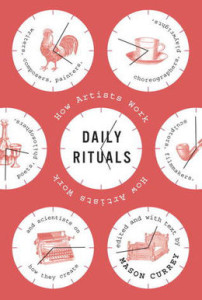 I think there’s a real danger in trying to imitate everything successful people do. Sometimes folks who have genius for art have no ability to understand or articulate that genius, and sometimes people who look like geniuses are just lucky. However, I do take a lot of heart in the ability of incredibly successful artists to achieve great things in steady, bite-size increments. Here’s what I find the most heartening, however:
I think there’s a real danger in trying to imitate everything successful people do. Sometimes folks who have genius for art have no ability to understand or articulate that genius, and sometimes people who look like geniuses are just lucky. However, I do take a lot of heart in the ability of incredibly successful artists to achieve great things in steady, bite-size increments. Here’s what I find the most heartening, however:
The busier people were less precious–you learn to fit [your creative work] in, and you don’t have these elaborate eccentric rituals if you have children or a day job. Someone like Joseph Heller wrote Catch 22 in the evenings after work. He’d write for two or three hours a night after his job as an advertising executive doing campaigns for magazines. He was not a tortured artist. He found as much joy in his day job as writing Catch 22 at night. “I couldn’t imagine what Americans did at night when they weren’t writing novels,” Heller said. Currey also notes in Daily Rituals that even when Heller quit his day job to write full-time, he still only worked on his novels for two to three hours a day.
Maybe there’s hope for my artistic dreams after all?
Check out the full article for more info on the book Daily Rituals.
Music, the Paradox of Choice, and Love
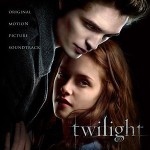 I have to start this post with a frank admission of guilt: I really like the Twilight soundtrack. Something about the music, the constant rain, the muted color palette, and the absence of concern for any of the characters made watching the film a relaxing, mesmerizing experience. I may even have watched it more than once. (I’m honestly not sure.)
I have to start this post with a frank admission of guilt: I really like the Twilight soundtrack. Something about the music, the constant rain, the muted color palette, and the absence of concern for any of the characters made watching the film a relaxing, mesmerizing experience. I may even have watched it more than once. (I’m honestly not sure.)
One of the best things about the soundtrack is that in addition to really strong tracks from bands I already love (like Muse, Iron & Wine, and Paramore), it also introduced me to some great tracks from bands that I had never heard of: “Full Moon” by The Black Ghosts, “Spotlight” by Mutemath, and “Eyes on Fire” by Blue Foundation.
There are few things I love in life more than the feeling that comes over me when I hear something for the first time and think “Wow, I could really fall in love with this song.” My relationship with music is a lot like my relationship with people. It’s always fun to meet new people and exciting to learn the things you have in common, but it takes time for a true, strong friendship to build. At any given moment my roster of favorite tunes is filled with songs from both ends of the spectrum: those that I love because I just discovered them and those that I love because they’ve been with me for years and I’ve sung along enough to memorize all the lyrics.
There aren’t that many bands, albums, and songs at the older end of the spectrum, however, because a lot can go wrong along the way. A lot of the times the lyrics–which I often don’t catch the first time around–end up letting me down. Other times, the song ends up being an unusual standout from an otherwise mediocre band. Of all the songs that I’m thrilled to hear the first time, only a small number make the “must have” list and get locally stored on my iPhone.
Other than the intrinsic excitement of hearing a good new song, there are two more things to anticipate. The first is sharing new finds with my friends. The second is the prospect of more where that came from. One good song is like a nugget of gold in a prospector’s pan: I immediately want to know if there’s more gold in them hills.
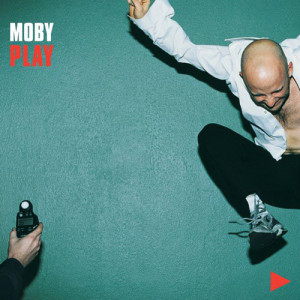 So, over the years, I’ve got my music-prospecting strategy fairly well-refined. I use a combination of Pandora, NPR, TV commercials (if they’re good enough for Moby they’re good enough for me), soundtracks and sometimes even the radio to generate new leads. Then I get on Spotify and start listening. I’ve discovered lots of my current favorite music this way, from DJ Shadow to Lecrae to Ludovico Einaudi. And yet, despite a steady stream of new music, I still find myself often thinking “I have no idea what to listen to right now.”
So, over the years, I’ve got my music-prospecting strategy fairly well-refined. I use a combination of Pandora, NPR, TV commercials (if they’re good enough for Moby they’re good enough for me), soundtracks and sometimes even the radio to generate new leads. Then I get on Spotify and start listening. I’ve discovered lots of my current favorite music this way, from DJ Shadow to Lecrae to Ludovico Einaudi. And yet, despite a steady stream of new music, I still find myself often thinking “I have no idea what to listen to right now.”
I keep trying out new schemes to organize the music that I’ve discovered, and I keep failing. I’ve tried making playlists many, many times but I invariably start strong with a handful of tracks and before I’ve got a single album’s worth the initial focus of the playlist (a particular emotion? an associated activity? a genre?) has grown so muddy that I find they’re all starting to run together and I can’t tell if a song should go in or not. I’ve also tried the opposite approach: throwing a bunch of music into a playlist, and then tossing back out the songs that I don’t like as I listen. But, since I’m usually listening while I work, I end up being bothered enough by bad songs to notice, but not enough to remember to toss them out. So far, nothing works.
I’m starting to think that despite the huge access to great new music, in some ways the days of CD collections were actually better. I don’t think I ever had more than 2 or 3 dozen CDs in high school in the late 1990s, but that meant that choosing what to listen to was easy: I could flip through my entire collection (mentally or physically) in just a few seconds. I had the tracklisting of every album memorized, and I could skip any tracks I didn’t like without even thinking about it. My music collection felt like my hometown. I didn’t exactly choose it in the sense that most of my first CDs were hand-me-downs and even the one’s I bought were based on extremely limited knowledge, but they were mine. I knew them inside and out. Now? I feel like I don’t have a musical home anymore. Even in my own collection I’m a foreign tourist visiting a stranger’s soundscape.
Part of this is what economists call the Paradox of Choice. The original theory (that more customer choices lead to fewer sales) has started to fall out of favor, but the basic realization that deliberation is costly is certainly true. I don’t think it’s just that I used to have fewer music, but I think it’s that–because I had less to listen to–what I listened to I learned very well. It became a part of me, so choosing was second-nature. Now, with so much to choose from, my exposure to any given song or album or band is fleeting and glancing. It’s not just that I have more to go through when I’m deciding what to listen to, it’s that I have to think a lot harder about every single option because I don’t really know them that well. The result is that even tracks that are unbelievable good when I think to listen to them fall through the cracks. My wife put on Regina Spektor’s “All the Rowboats” in the car the other day, and I was stunned that I had forgotten such an awesome song was in my collection. It feels like getting lost in my own home.
I started writing this piece as a way of asking for help and advice about how to better track my music. And I’m still curious to hear what folks have to say, but maybe I’ve already identified the real problem. I’ve been trying to find an easy way to build my musical mansion. Maybe that’s impossible. Maybe another quaint economics axiom applies: there ain’t no such thing as a free lunch. Maybe if relationships with music are like relationships with people, then trying to a satisfying and easy relationship is like asking for a full-length abridgment. Maybe easy outside options are the enemy of all relationships that require investment to grow.
There’s got to be a better take away then just “things were better back in the day”, and I think there is. Trying to pretend that it’s still 1997 and I’m still living at home might help me recapture some of the lost sense of connection with my tunes, but even if it did, dialing back 1/2 my life doesn’t sound like a good candidate for Plan A. After all, the whole problem is that it’s the weight of incredible musical potential that’s dragging me down. Can’t let go of the weight without letting go of the promise. So, I guess I’ll just start dedicating more time and effort to listening to all this great music, giving it some of the respect it deserves, and wait with stubborn patience to build back the bridges of nostalgia, but bigger, brighter, and more solid than mere memories.
To All Heartbroken Game of Thrones Fans: Neener, neener.
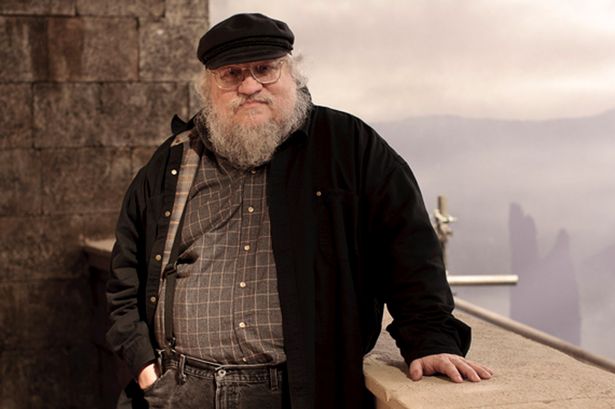
[Here there be spoilers!]
Allow me to regale you with a tale of my relationship to George R. R. Martin’s Game of Thrones. Once upon a time, long, long before most of you who watch Game of Thrones had ever heard of it, I read the first book. I was immediately impressed by Martin’s craft. The man can write, and I would never question that. But what he chose to write really rubbed me the wrong way. Specifically: I felt like the books were engineered to manufacture a sense of realism by deliberately doing horrible things to likable characters. When Ned Stark got executed at the end of the book I set it down, and I’ve never been tempted to pick up another one.
So, when all the Red Wedding stuff started breaking out over Twitter, it took me a few days enough to bother to investigate. When I eventually read a description of what had happened, I felt incredibly vindicated. And it’s not just that Martin killed off more likable characters, but it’s why he does it.
The Mirror has a couple of quotes from Martin that confirmed all my suspicions about his authorial decisions. See if you can spot the problem:
T&S: Another Post About Mormons and Science Fiction
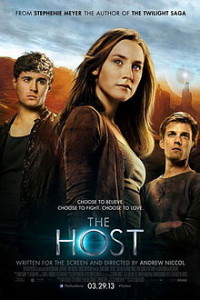 I expanded on some of my thoughts on Mormons and sci fi for a post this morning at Times And Seasons. Give it a read if that strikes your fancy.
I expanded on some of my thoughts on Mormons and sci fi for a post this morning at Times And Seasons. Give it a read if that strikes your fancy.
Is Science Fiction Intrinsically Liberal?
Mike Brotherton brought Adam Robert’s Guardian piece to my attention. I can paraphrase the article very succinctly (which is rare for me): “Since science fiction is about the future, and the future is not now, science fiction is about otherness. And is therefore liberal and good. Except that some people (conservatives) hate otherness, so they write stories about killing aliens. And love authority. PS – I hate conservatives.”
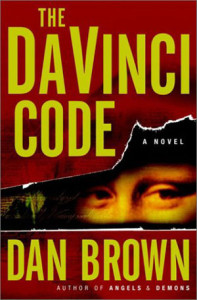
You can probably tell I don’t think too much of this piece, but I do think it’s an interesting topic. I love sci-fi, and I’m also fascinated by how political ideologies battle it out in pop culture. That’s actually pretty boring in most media because there isn’t much of a battle. Hollywood is about as politically homogeneous as they come, and soF when it comes to politics there’s not a lot going on. You either get orchestrated propaganda, egregious digs at conservatives, or–very rarely–you get relatively nuanced perspectives precisely because there’s so little threat conservatism that it can occasionally be trotted out like a strange zoo creature. No, the most interesting political battles by far are fought in the thriller / action section of the New York Times best sellers. You’ve got all kinds of conservatives, from Tom Clancy on down, but also plenty of blatant liberals like Dan Brown. Both sides interject their politics freely and in not-so-subtle ways, and it’s fascinating to read. So, if I were gong to talk about politics in books, that’s where I’d start.
But Adam Roberts writes sci-fi so he wants to talk about sci-fi. Well, alright then. Let’s drag this argument under a spotlight and take a look.
First of all, the idea that “future” is a proxy for “other” is a stretch. By that logic, all fiction (since it’s about something other than reality) would be intrinsically liberal and all non-fiction (since it’s about reality) would be intrinsically conservative. This might be true for a very, very philosophical definition of “liberal” and “conservative”, but clearly not for anything that actually looks like modern politics in the US or in the UK.
Secondly, there really isn’t that much of a dichotomy between conservatives and liberals in sci-fi. The vast majority of sci-fi writers are liberals, pure and simple. I’d say the next largest segment would be the libertarians. Roberts cites Heinlein as a great conservative, but the only way you could think that is if the only Heinlein story you ever read was Starship Troopers. That book has a decidedly militaristic / authoritarian vibe. But the man who practiced open relationships (in real life) and wrote satirical descriptions of a free-love Jesus (Stranger in a Strange Land) cannot be seriously categorized as “conservative”.
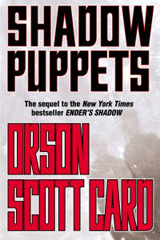
Roberts only real conservative is Orson Scott Card. Card is, interestingly enough, a Democrat, but since he’s Mormon that doesn’t mean what it might mean to most Americans. In any case, he is most famous for coming out staunchly in opposition to gay marriage–both in his books and in his public writing–and also for lacing his reasoning with apocalyptic prophecies of the literal downfall of American civilization. But Card, despite his stature, is an exception that proves the rule. Here’s a fun trick: pick another famous science fiction author who is conservative. I can name a couple more, but they are all dead. Phillip K. Dick was so outraged by the Roe v. Wade decision that he wrote an infamous short story about a society that arbitrarily decided that you weren’t considered a person until you could do calculus, and Walter M. Miller Jr’s beautiful “Canticle for Leibowitz” is an elegant paen to his Catholic faith. Both, like I mentioned, are no longer with us.
But when you try to think of sci-fi writers who are overtly liberal, it’s hard to know when to stop listing names. John Scalzi’s politics are not readily apparent in his fiction, but he runs one of the biggest blogs on the Internet and is not shy about his leftwing politics there. Cory Doctorow’s books are basically political sermons with a sci-fi candy coating. Kim Stanely Robinson wrote an entire trilogy (Red Mars, Green Mars, Blue Mars) to put both is staggering economic ignorance and left-wing political ideology on display, and then recently wrote another novel in the same vein. These are all guys writing today (and there are more), but of course some of the greats were also very liberal. Ursula K. Leguin comes immediately to mind. It’s practically impossible to read a work of modern science fiction without being bashed over the head by certain, core liberal beliefs that sci-fi writers have really glommed onto. The most notable is the idea that sex can and should be excised completely from any consideration (cultural, emotional, etc.) and treated as a purely recreational activity with no implications beyond the immediate gratification of physical desire. If sci-fi, especially male-written sci-fi, had a single, core article of faith that would be it.
So much for Robert’s argument. As for Brotherton, I’m glad to see that (despite being the kind of religiously intolerant liberal who refers to Orson Scott Card as belonging to a “fundamentalist cult”) he rejects the notion that science fiction is intrinsically liberal. But he also rejects the notion that there’s an ideological battle of any kind going on, and there I think he goes to far. As I mentioned in a comment to his piece: it’s really hard to separate the metaphors of “battle of ideas” and “marketplace of ideals”. The key concept in each is competition.
Richard Dawkins’ conception of the ideas-as-genetics makes sense here: There is no demilitarized zone in the struggle for survival, either of genes or of memes.
Friday Music: Rome
The last three posts have not been fun to write. I don’t regret for a second the time I spent writing them, but I also need to preserve my sanity by looking away from the abyss from time to time. So I’m happy that we’re going to go far, far away from the topic of politics and talk about an absolutely amazing record that you have to hear to belief. Because trust me, the description sounds too bizarre to be real. What we have is a loving homage to spaghetti western soundtracks that brought together producer Danger Mouse and Italian composer Daniele Luppi along with Jack White and Norah Jones. It’s the kind of record you could only possibly hear about from NPR.
What’s that, you say? Pics or it didn’t happen?
Bam! The Internet don’t lie, son!
When I first heard the description on NPR, I knew that I had to listen to the music. A few months later, when I got Spotify Premium, I was incredibly happy to find that the album blew away all my highest expectations. Every single song on it is great. And unique. And yet the album is cohesive. Look, I’m not a music reviewer. I’ll just tell you this: I love to travel as much as the next guy, sure, but I’m basically a hobbit. I love to have my home, and to go on adventures but then come back. But when it comes to music? My desire for new sounds that take me to new worlds is, as far as I can tell, insatiable. And this blend of instrumental and vocal tracks is just perfect for me.
So let’s get to the music.
That’s “Two Against One” (Jack White, obviously), and it’s got excellent lyrics like “I keep my enemies closer than my mirror ever gets to me” and “There’s only three, you and me against me… I’m already fighting me, so what’s another one?”. Recasting bravado into a context of inner turmoil is exactly the kind of unexpected new combination that I can never get enough of. It’s like the audio equivalent of Firefly or Cowboy Beebop. Yes, please . (There’s an animated version of the video, but it was too distracting for me to use in the post.)
But let’s not leave Norah Jones out, oh no! That simply would not do. Not at all.
Apparently the fourth season finale of Breaking Bad used that track, but I don’t watch the show so I wouldn’t know. I just know it’s awesome. And now you do.
And, after this week, that’s something I know I could use.
Stephanie Meyer: Good Stories, Poorly Told
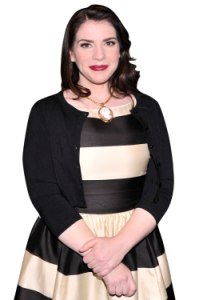 So Vulture has an interview with Stephanie Meyer (author of Twilight and The Host), and she mentions that she’s working on a sequel to The Host. That caught my eye because I just finished reading the book. I had been asked by a freelance writer to answer some questions about Mormons and sci-fi for a piece about the movie adaptation of The Host (article’s not out yet, not sure if/when it will be), and so I decided to check the book out. [Spoilers ahead, if you were thinking about reading it.]
So Vulture has an interview with Stephanie Meyer (author of Twilight and The Host), and she mentions that she’s working on a sequel to The Host. That caught my eye because I just finished reading the book. I had been asked by a freelance writer to answer some questions about Mormons and sci-fi for a piece about the movie adaptation of The Host (article’s not out yet, not sure if/when it will be), and so I decided to check the book out. [Spoilers ahead, if you were thinking about reading it.]
I got the audiobook version (’cause I have no time for reading) and listened to it during my work commutes. I had it sped up (sometimes as high as 3x) to get through the story faster. And the thing is: I actually liked it quite a bit at first. The premise of the story is that Earth has been taken over by body-snatching parasites and only a few humans remain. You’d expect the story to be one of resistance and rebellion (e.g. Independence Day), but it’s not. Instead of action-adventure, the story takes on a much more fatalistic view of the invasion, which is completely accomplished before the story really starts. The result is that it’s a much more interesting take–philosophically and emotionally–on alien invasion. The relationship between the main characters (Wanderer, one of the parasitic aliens, and Melanie, her unwilling and rebellious host) is also a lot more interesting and, dare I say it, believable than I would have guessed. So the first third of the novel, roughly speaking, was really winning me over.
But then Stephanie did what Stephanie does. First of all, she has almost no ability (as far as I can tell) to trim. The worst of this, by far, was Breaking Dawn (yes, I read all the Twilight books) where it was abundantly clear that she had such affection for her own ideas that she was determined to put every last one in the book. Whether it had anything to do with the story or not. Secondly, there’s just a lot of weird gender-issues stuff going on that I don’t feel competent to evaluate fully but which definitely weird me out. The number of times Melanie gets beaten by the love of her life while and then goes off to whimper over her bruises and injuries while thinking about how much she loves the man who did this to her are just… disconcerting. Of course it’s not just your average partner-abuse scenario because Jared hates the parasite precisely because he thinks she has killed Melanie, but that only gets you one beat-down, in my book. After that, things get creepy. And then of course there’s Ian (another human) who does fall in love with Wanderer (the alien parasite), but only after he tries to choke her to death at the first meeting. And yes, Wanderer falls for him too. What’s a little strangulation in the face of love, right?
In the end, I think that Meyer has basically the same view of plot as she does of romance: some inexorable force that bends people to its will. Her characters are as stupid as they need to be in order to get them where they need to be in order to further the story. And it’s really disappointing to me, because she really has some great ideas, but they tend to get first drowned out in all the not-so-great ideas and then abusively manipulated in the interest of an irresistible happy ending.
Unlike Twilight, The Host had a lot of genuinely compelling ethical questions. In terms of sci-fi, it actually did a pretty good job. There were some really compelling elements, but in the end it was just a good story, told quite poorly. Still, I guess I have hope for Meyer’s future writing, because this seemed so much better than Twilight. I don’t expect much from a sequel, but when she writes another new story (and I have a feeling that she will), I’m probably going to give it a read.
Friday Music: Dustin Kensrue
Anyone that knows me know that I love Thrice. From 1998 until they declared a hiatus just last year, they brewed a special blend of hardcore punk and authentic Christian yearning. Dustin Kensrue was the lead singer and the songwriter for Thrice, and the force behind their faith-fueled rock. In 2006 he released a solo album with a very different sound but a very similar message.
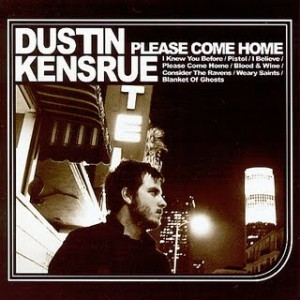 There are a lot of great songs on that album, and I think two of the most appealing to listen to are I Knew You Before and Pistol. But I’m going to bypass those to talk about the songs that are the most special to me.
There are a lot of great songs on that album, and I think two of the most appealing to listen to are I Knew You Before and Pistol. But I’m going to bypass those to talk about the songs that are the most special to me.
The first of those is the album’s title track: Please Come Home. It’s a simple, unadorned retelling of the Prodigal Son. I love that this particular video is a live performance from the US Open of Surfing. Not exactly the venue you’d expect for a song that is an unabashed Bible story, but that’s part of what I love about Dustin. It’s obvious from his songs, his attitude, and his choices that his Christianity is not an addition to his life. It’s the core of his life.
I’ll be honest, I have a hard time singing along to that song in my car ’cause I tend to get choked up near the end. The Prodigal Son’s father is the God I recognize.

